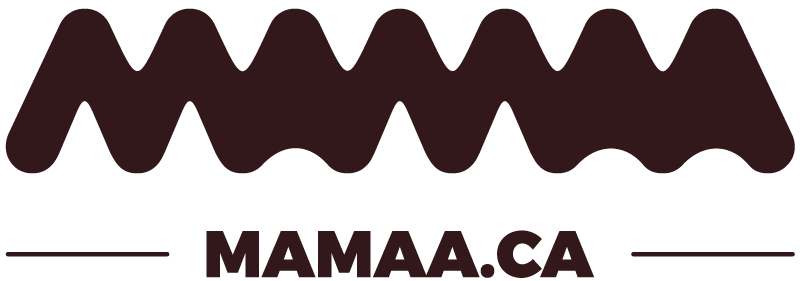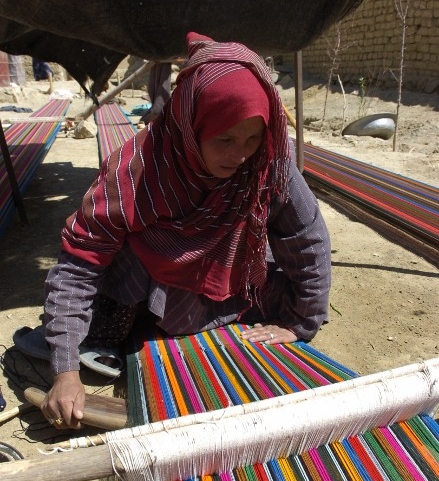Where do your products come from?
We deal directly with the artisans in deprived communities in Northern Ghana and Afghanistan, disabled groups in Uganda and refugees in Turkey.
When you buy products through us you support poor women to take better care of their children and their communities. Make a positive change with each purchase!
“It is important to me to see my children succeed, and I wish the same for every son and daughter of the women in our team. Shea production offers us widows an opportunity to save money for children’s education. That is why I try to offer everyone work at the factory based on their abilities. We all know how to make shea butter. We learned the craft from our moms. Our moms got the skills from their moms. And we are keeping this tradition alive.”
The partners of Mamaa Trade are located in Kongo village in Nabdam District, Upper-East Region of Ghana which is one of the poorest regions of the country.
The area’s dry soil, coupled with erratic rainfall and harsh weather conditions, makes farming challenging. Making baskets and shea butter offers the local women, especially widows who are in a vulnerable situation, an opportunity to earn vital additional income, which they invest in educating their children and ensuring a better food supply for their families.
Yen Pang Basket Weavers cooperative was established in 2014 with the support of Estonian NGO Mondo. Having initially started with eight women under a mango tree, the cooperative has now quadrupled in size, and has its own centre for weaving and storing the baskets. The cooperative is also training other women in nearby villages in basket weaving.
Kongo Nagbok Nongtaab Shea Butter Production unites more than 100 widows in the community. Shea butter is often called African women’s gold, and it has been used for cooking and caring for babies’ skin for thousands of years. Making shea butter is a skill that is passed on from mothers to daughters and every woman in the area knows how to make it for household needs. With the help of NGO Mondo and Estonian development cooperation funds, the women at Kongo village have a shea butter production center, which enables them to produce and package good quality shea butter in larger amounts for export.
Susanna
Susana is the head of the shea cooperative ensuring the factory is running smoothly and only the freshest and purest Shea butter is prepared.
“I’m very grateful of the opportunity to sell baskets to customers in Canada. In our local market the price of baskets is only half of what I get from Mamaa Trade. Making baskets is the only way of feeding my family. Before there were days when we did not have anything to eat. Now those days are gone.”

Maria
Maria was born in 1963. When she was 15 a local man raped her and she got pregnant. As a result she had to marry the man and they eventually had 7 children together. She also contracted HIV/AIDS. Her husband died and she came to Kikooba in 2014 with her five grandchildren as her sister was living there. She is one of the founders of the Kikooba women's group and serves as their chairperson. She learned the skill of weaving when she was young from her grandmother and passes it now on to the younger women in the community.
Jennifer
Jennifer is 32 years old. She was 5 years old when she became disabled because of polio. She has studied office and information management at Makerere University, but has failed to get a job in her field due to her disability.
In Uganda Mamaa Trade works with three groups of disabled people. People living with disability are vulnerable not only by virtue of their impairment but also due to negative social stigma.
An important part of restoring their dignity is their ability to have dignified work and earn a fair wage. Having an employable skill is therefore vital for the people not only to earn a living but also in order to change societal attitudes.
Kampala Disabled Initiative is a group of physically handicapped women with great skills in tailoring and crafts making in the capital Kampala. The women regularly take in new handicapped girls as trainees to teach them sewing skills. Many of the products are developed in cooperation with Estonian fashion designers and volunteers.
Olivia
Olivia is the founder and head of the Kampala Disabled Initiatives. Like many other women, she was paralysed as a child from polio. She likes sewing yoga mat bags and weekender bags. Her joy is also teaching tailoring to young trainees.
“I enjoy working in KDI. This experience has taught me a lot about responsibility and cooperation. Through sewing I’m able to support my small daughter and offer her a better future.”
“My dream is to finish my house and see that my children are well-educated. Due to HIV/AIDS I know that I’m not able to support them for long.”
“I cannot get a job in an office. A huge part of a village woman’s life is to dig in the garden, but I also cannot do that. I’m now learning tailoring as these skills can provide income. I’m particularly happy if people like the things we do as far as Canada!”
Small stuffed animals from Uganda come from a disabled group in Northern Uganda, close to Gulu, called Lugoro Tutte Disabled Group. It consists of 12 members - 4 men and 8 women who try to achieve economic independence through engaging in handicrafts. This is especially hard as the area has suffered from prolonged war and displacements.
Kikooba Women with Abilities is a group of local women in Kikooba village, two hours drive west from Kampala, the capital of Uganda. The women from poor background come together to learn new skills and to engage in income-generating activities. They meet regularly to produce gorgeous crafts from local natural materials. Their baskets, mats and jewels are made from banana leaves, sisal and palm fibres.
Hand-embroidered bags, toys and pillowcases are supplied by Silk Road Bamiyan which consists of handicraft makers in Dragon Valley in the countryside of Afghanistan.
Their embroidery shows the traditional skills and motives of the region. The products help the women preserve their skills and earn a living in a country suffering from the consequences of years of warfare.
Zardozi means "golden embroidery" in Persian and the organization was founded almost 30 years ago to offer employment to war refugees from Afghanistan in Pakistan. Even today thousands of women in eastern Afghanistan earn stable income though making handicrafts for Zardozi. Personal income gives the women a stronger position in the family and allows then to get medical aid and educate their children.
Artisan Links is a social enterprise, member of World Fair Trade Organisation, empowering and uplifting Afghan women artisans. Through their beautiful fair trade, ethically handmade products/gifts they offer thousands of Afghan women in East-Afghanistan and Pakistan the opportunity to earn stable income though their emboidery skills. This enables the women to pay for medical aid and educate their children.
Nadia’s Story
Nadia was born in Afghanistan, the eldest of nine siblings. Due to the war, her father lost his business and they had to migrate to Pakistan in 1992. Here they settled in a refugee camp where they faced numerous difficulties. She was left to look after her siblings while her parents worked hard to make ends meet. She was unable to study because of the additional responsibilities. Due to her father’s illness, she had to undertake sewing and stitching to support her family. She was able to enrol her younger sisters in school. Being employed at Artisan Links helped her tremendously to meet her financial obligations.

Zeynep
Zeynep is a 35-year-old Syrian refugee woman who has been part of the project since the beginning.
Rose
Rose is another member of Small Project Istanbul.
The earrings and tote bags are supplied by Small Project Istanbul which supports Syrian refugee women in Istanbul to learn new skills and earn money by producing crafts.
Through a training program focused on language, technical handicraft, and business acumen skills, more than 60 Syrian women have grown in self-confidence and ownership of the brands "Drop Earrings Not Bombs" and "Muhra" which share their message of experience and individuality.
“I’m a woman from the Middle East, a housewife and a mother. The war was too tough on us. We traveled to Istanbul and experienced a new life. I never thought I’d be embraced by a community like the one I’ve found at Small Projects Istanbul. We’ve found a space for equality. We’ve found so many skills we didn’t know we had inside. I’m so excited to share what’s emerged from within us. We can use it to make connections with people around the world.”
“The most positive thing about the enterprise is that I can support my family with my creativity. Before, I never imagined I could make something creative with my hands. We have to communicate a lot with each other to do the work, to make sure we know exactly what the order is and how we can achieve excellent quality. We must love each other in this, to be producing good quality work.”

















